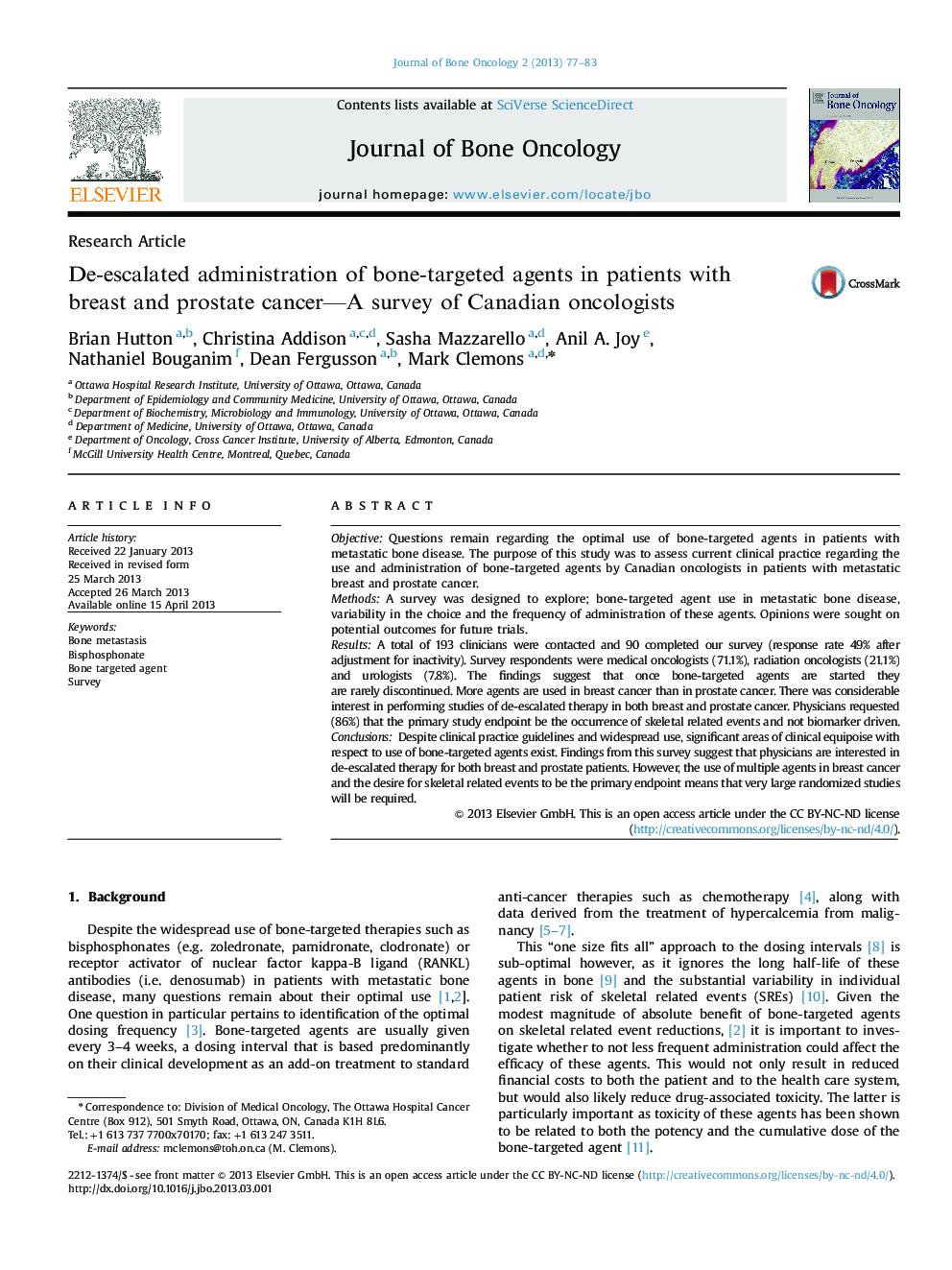| Article ID | Journal | Published Year | Pages | File Type |
|---|---|---|---|---|
| 2136085 | Journal of Bone Oncology | 2013 | 7 Pages |
ObjectiveQuestions remain regarding the optimal use of bone-targeted agents in patients with metastatic bone disease. The purpose of this study was to assess current clinical practice regarding the use and administration of bone-targeted agents by Canadian oncologists in patients with metastatic breast and prostate cancer.MethodsA survey was designed to explore; bone-targeted agent use in metastatic bone disease, variability in the choice and the frequency of administration of these agents. Opinions were sought on potential outcomes for future trials.ResultsA total of 193 clinicians were contacted and 90 completed our survey (response rate 49% after adjustment for inactivity). Survey respondents were medical oncologists (71.1%), radiation oncologists (21.1%) and urologists (7.8%). The findings suggest that once bone-targeted agents are started they are rarely discontinued. More agents are used in breast cancer than in prostate cancer. There was considerable interest in performing studies of de-escalated therapy in both breast and prostate cancer. Physicians requested (86%) that the primary study endpoint be the occurrence of skeletal related events and not biomarker driven.ConclusionsDespite clinical practice guidelines and widespread use, significant areas of clinical equipoise with respect to use of bone-targeted agents exist. Findings from this survey suggest that physicians are interested in de-escalated therapy for both breast and prostate patients. However, the use of multiple agents in breast cancer and the desire for skeletal related events to be the primary endpoint means that very large randomized studies will be required.
